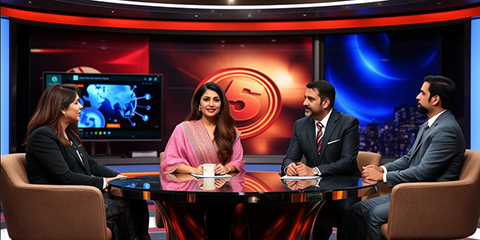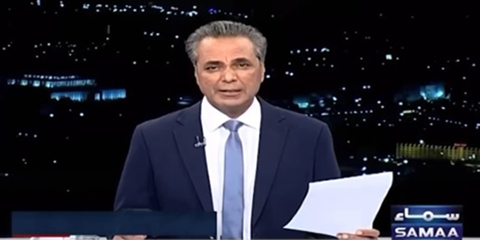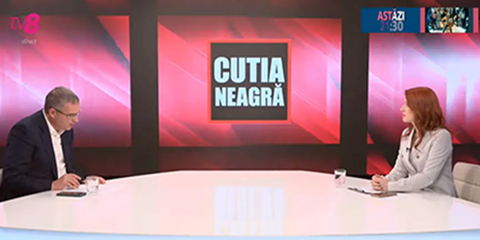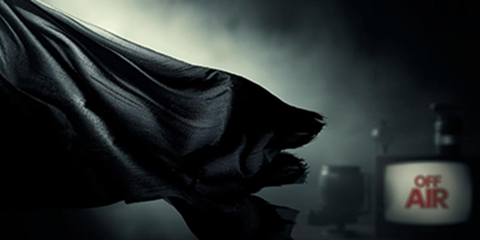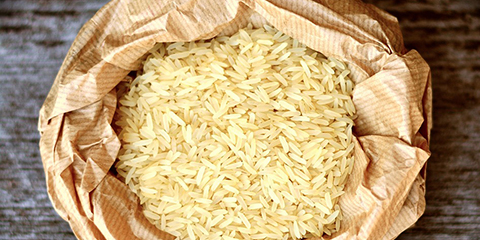Inside the newsroom on budget day
JournalismPakistan.com |
Published 9 years ago | Daud Malik
Join our WhatsApp channel
ISLAMABAD - The newsroom is in a flux. A hectic day with lots of work and activity. In the good old days everybody, including the editor, would be in the office early. Though reporters come up with their scoops a day earlier about the outlay of the budget, new taxes, money allocated for development and defense, everybody knows what the finance minister says on the floor of the National Assembly (provided we are passing through a democratic phase) matters.
Apart from the main story, reporters are assigned budget stories in line with their beats to avoid beating about the bush. Some serious looking experts, again in the good old days, would also be present to give their expert opinion in the form of analysis pieces on the next year’s monetary policy.
Reporters outwardly relaxed trying to give the perennial know-all look would fidget nervously knowing this would be a hectic day. They would be staying in the office late into the night.
The subs on the other hand would boringly wait for the budget speech and the stories to come to start their daily drudgery. However, they know they have to be extra careful on this day and not mix their millions and billions. Though most of the financial terms may be stranger to them, they know like every year they would be able to pass through the hectic day.
The page makers would be ready to show off their skills, especially with tables and graphs. Even the sports pages which are a “state within a state” in a newsroom know that they may also have to carry a story on budget.
The editor and the shift in-charge would be busily marshaling their troops, constantly trying to cover every side of the budget. They would talk to reporters and the desk people again and again, ensuring they have covered every base.
The city pages would cover the views of the “ordinary citizens” as the politicians will be contacted for their take on the budget. Everybody knows the headlines in advance – from pro-poor to anti-poor.
Amid all this activity, a free dinner which is on the newspaper – mostly a bowl of rice and chicken – is keenly looked forward to.
As the speech of the finance minister nears, the fidgeting increases, though everybody tries to be calm and cool. At last the momentous occasion arrives when the finance minister rises in the National Assembly to deliver the budget speech. Everyone in the newsroom is all ears, even if most do not understand what the honorable finance minister is trying to say.
If the opposition decides to stage a protest during the budget speech, which does not happen often, the burden of everybody from reporters to desk people increases. Apart from the figures of total outlay, deficit, GDP, revenue, there is also scramble for getting all the details of the protest.
Once the speech ends, the race begins. With the reporters pounding down on their keyboards with cigarettes in their mouths (not all of them), the subs silently pray for good copies – a prayer seldom answered.
With the reporters churning out stories, there is also an eye on the newswire stories, especially the foreign ones for their copies are clean and crisp. Reporters look for some readymade stuff while the subs also seek some clarity and help to understand the stuff given to them.
The feverishness hits the roof when the lead is being prepared. It is time for repetition. Every detail of the budget is to be summarized into the main story. As the reporters go into the calm mood, the subs start to clip and clean the stories.
The hectic day (or rather night) starts to take shape as stories are placed onto the pages. It’s budget everywhere. With reporters hesitantly hanging around, the desk guys are immersed into getting the headlines right. They know the repetitions but now they just want to get the pages out of the newsroom. They reach a stage where they know that once printed, everything will be fine.
(The writer is a senior journalist who has worked for The News and Dawn)
Read Next
From Pakistan Times to Google News: The story of journalism’s digital transformation
October 26, 2025:
A veteran journalist reflects on the decline of newspapers, the rise of digital news, and how technology forever changed the rhythm and rituals of journalism.
Inside the editorial reforms that changed Pakistani broadcast journalism
April 28, 2022:
Muhammad Ibrahim Raja’s ethical reforms transformed Pakistani television journalism, protecting victims, ensuring safety, and promoting accountability across newsrooms.
Kaleem Omar: The literary legacy of Pakistan's most influential poet and journalist who shaped English poetry
September 25, 2025:
Discover Kaleem Omar's profound impact on Pakistani literature, from Lucknow to Karachi, his poetry and journalism shaped a nation's literary voice through exile and memory.
Honoring Razia Bhatti: The fearless editor who challenged Pakistan's power elite
August 15, 2025:
Remembering Razia Bhatti, the fearless Pakistani journalist and Newsline founder who died at 52 fighting for press freedom. Her legacy of courage in journalism continues to inspire media professionals worldwide.
From newsroom to UN: Dr. Maleeha Lodhi's historic journey as Pakistan's first woman diplomatic pioneer
August 14, 2025:
Discover the remarkable journey of Dr. Maleeha Lodhi, Pakistan's pioneering diplomat who broke barriers as Asia's first woman newspaper editor and served as ambassador to the US and UN Permanent Representative.
Puppet Press: How Pakistan's media sold its soul to the highest bidder
March 24, 2025:
Explore the 10 critical reasons why Pakistan's legacy media continues to disappoint, from political bias and corporate influence to digital transition failures and unsustainable business models in Pakistani journalism.
Recycled guests and repeated narratives: The talk show problem in Pakistan
September 07, 2024:
Pakistani media is under fire for its lack of investigative reporting, political influence, and censorship. With talk shows becoming monotonous and biased, the public is turning to digital platforms for real news. Read on to learn how Pakistani journalism is failing its people.
Censorship and career: Working as a journalist in the UAE
July 11, 2024:
Explore the challenges and opportunities expat journalists face in the UAE, with insights from Imran Naeem Ahmad, a former Gulf News journalist. Discover the impact of censorship, career prospects, and the reality of working for leading newspapers like Khaleej Times and Gulf News in Dubai.










